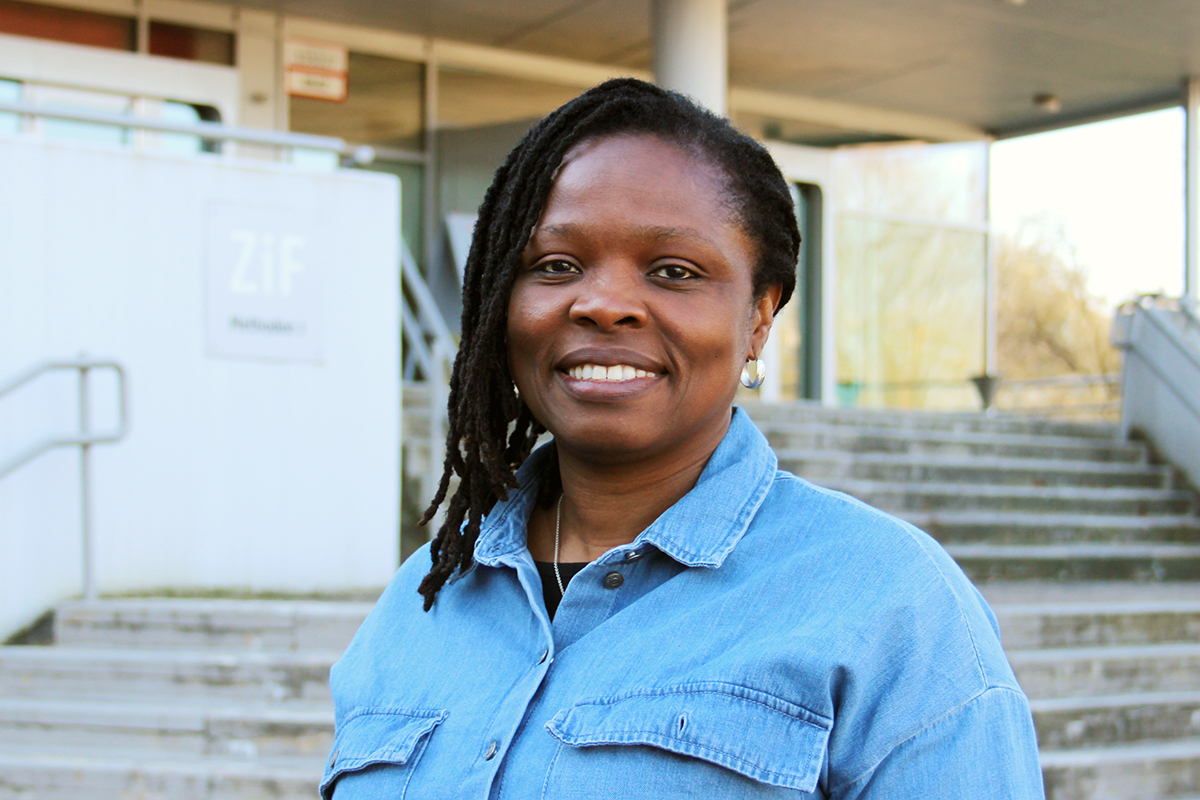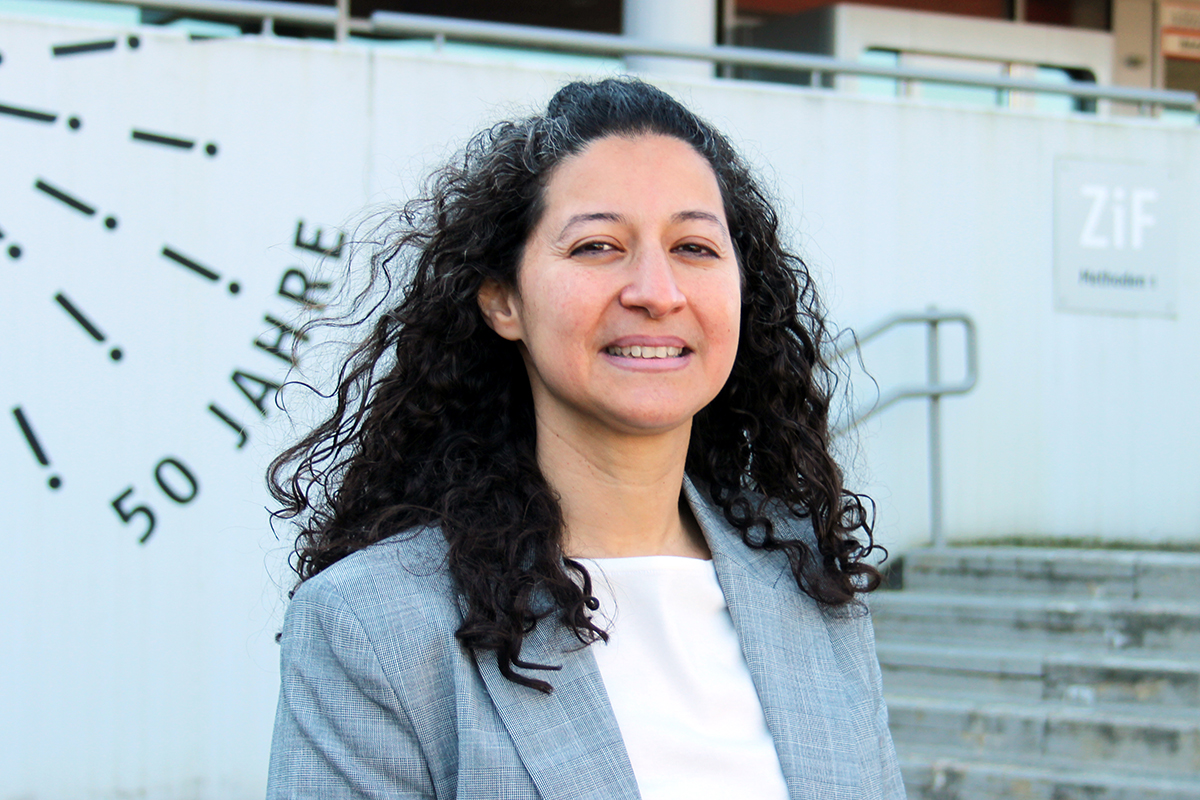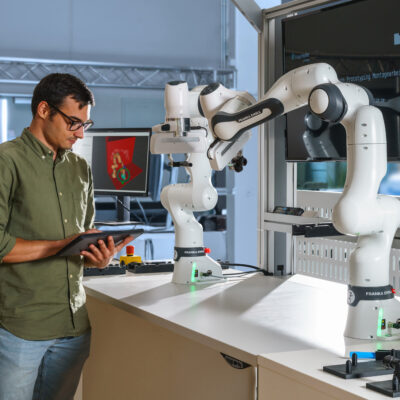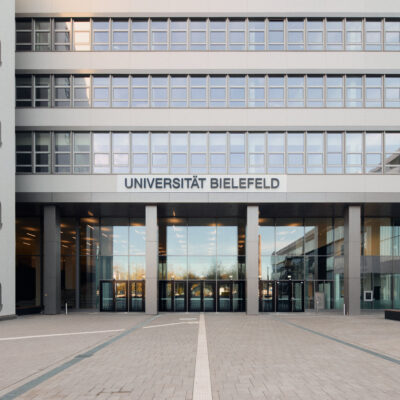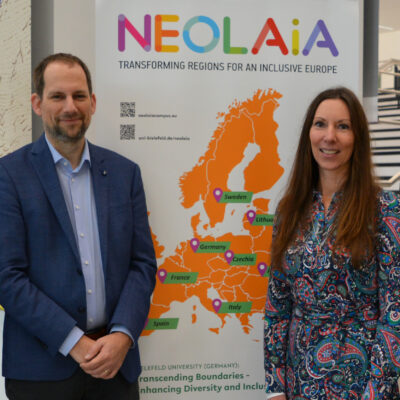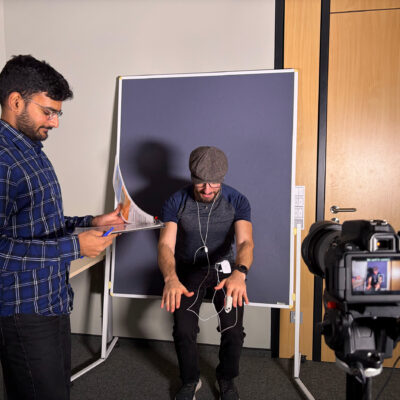Global challenges need global perspectives. In order to increase the diversity of perspectives in the ZiF research groups and to make African researchers more visible, the Center for Interdisciplinary Research (ZiF) at Bielefeld University is offering two scholarships per year for researchers from Africa: the Norbert Elias Fellowships, supported by the Volkswagen Foundation. Since October, two fellows have been contributing to the research group ‘Economic and legal challenges in the advent of smart products’ at the ZiF. Dr Sarah Mansour is an associate professor of economics at Cairo University in Egypt and Dr Adekemi Omotubora is a senior lecturer in law at the University of Lagos in Nigeria. We interviewed Sarah Mansour and Adekemi Omotubora about their research and the advantages of working in an interdisciplinary group.
How are your personal academic efforts related to the current ZiF research group?
Sarah Mansour: Broadly speaking, my research focuses on the study of behavior in transitional settings. I use lab, lab-in-the-field and field experiments to test my hypotheses. Specifically, I design and evaluate behavioral interventions that aim at increasing the level of social capital among Egyptians. Since my arrival at ZiF, I got introduced to different perspectives – economic, legal and technical – regarding the introduction of smart products.
My engagement with ZiF research group raised new ideas for me to study the impact of exposure to new technologies – like artificial intelligence (AI) for instance – on the formation of behavior in developing countries. With AI recently making lots of inroads in the introduction of many services it is thus extremely important to study whether people would be accepting this evolution: How would people react to it? Will the use of AI increase their level of trust in the system? In the ZiF research group, we also discussed the issue of privacy associated with smart products. I believe that privacy concerns for people in developing countries are a post-materialistic objective—they care more about achieving their basic needs. People will be expected to trade some of the privacy for increased living standards.
Adekemi Omotubora: I am looking at the intersection of law and technology, especially privacy and data protection and what the human rights implications of the introduction of these technologies are. We study questions like: What are the consequences of smart products for the labor market, for human rights and for democracy? Also, I have been working on the exclusion of women due to biases in algorithms for artificial intelligence: What does that mean for how products are developed and how they are used? Because if women do not use this technology, they would remain a marginalized section of society. This is an important topic we discussed in my research group. I also do some community engagement: I work on digital inclusion, especially on marginalized and excluded communities,a for example women, people living with disabilities and illiterate people who are likely to be excluded from the digital economy. I deal with the issues in the sense of what we need to do to ensure that everyone benefits as much as possible from new technologies.
What new impulses do you draw from your research stay at the Center for Interdisciplinary Research?
Adekemi Omotubora: I have worked in interdisciplinary teams before, but not in groups as big as this one. I mainly cooperated with computer scientists, developers and designers. Here we have different disciplines, and they are forcing me to think on how I work, how I can explain what I do and how I can integrate what I know with what I learned and make better decisions, at least with regard to methodologies. The introduction of smart products will have a massive impact on developing countries and might lead to new problems. Considering this viewpoint is also important for other members of the group. In addition, it is crucial to take into account how our cultural background could affect the introduction and acceptance of these products.
Sarah Mansour: As a behavioral and experimental economist, I am always trying to improve my understanding of the individual’s behavior, and the factors that might incentivize a change in that behavior, in order to increase the predictable power of our economic models. An economist alone is not able to do this, we need different perspectives from various disciplines, like for instance law, political science, psychology, neurology—all this together gives you the bigger picture on the topic and makes economic research deeper. So interdisciplinarity, which is the main feature at ZiF, is very important and useful for my research.
You arrived in Bielefeld seven months ago. How did you first encounter the city as well as the ZiF?
Adekemi Omotubora: Curiously enough, when I looked Bielefeld up in the internet to get an idea of what it is like here, I found the claim that Bielefeld does not exist. I was kind of confused. Being here, it is easier than I thought. I feared the language would be the most difficult barrier, but in my experience if I meet someone who does not speak English, there is always a way out.
Sarah Mansour: Maybe we are luckier than the fellows from last year because we did not face a lockdown… Life is pretty much normal here since we arrived in October. I like Bielefeld University, and specially ZiF, because it provides the best environment for both working and living. From the apartments, it is 30 seconds walk to the ZiF, which is very convenient. If you want to focus on your research—this is the place to be.
